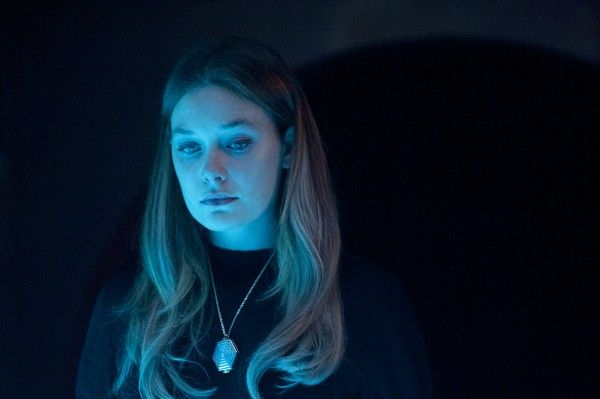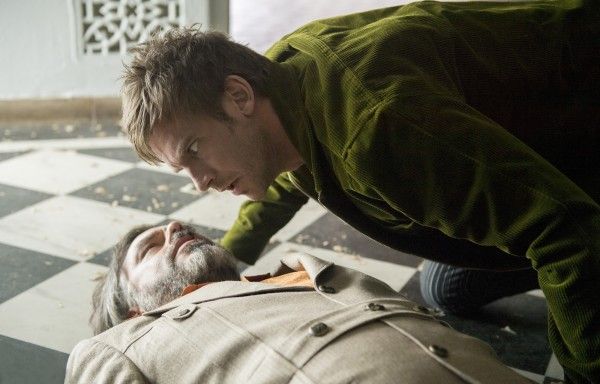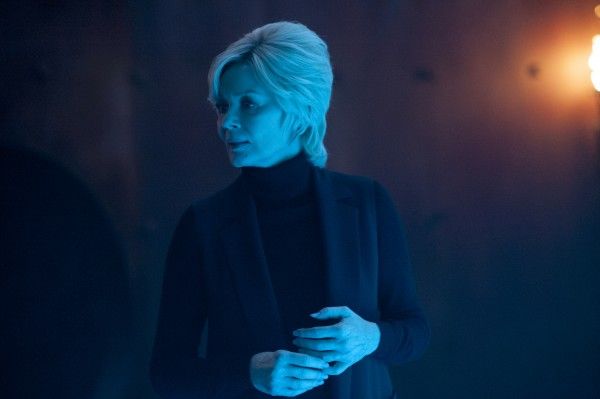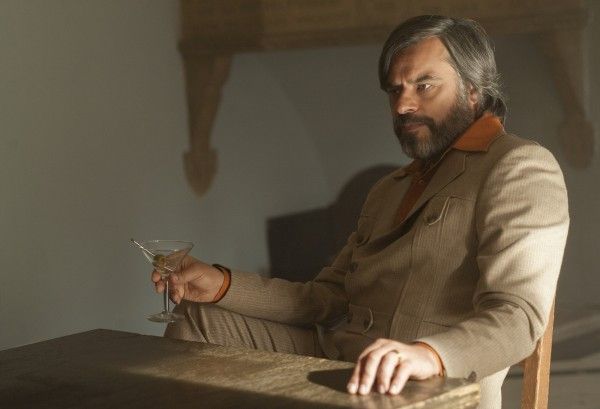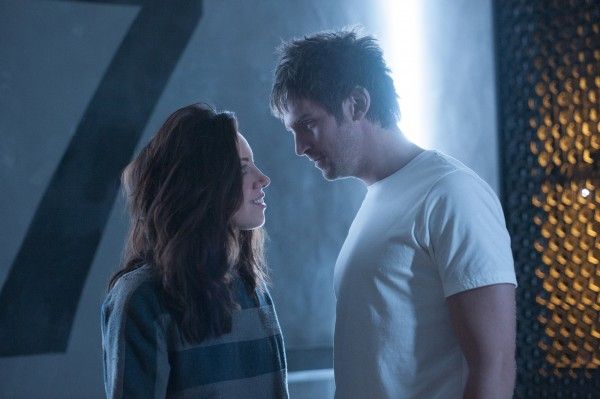Legion Season 2 finale spoilers below!
Legion is never anything other than a mind-bending experience, so the Season 2 finale was no exception. We saw David Haller (Dan Stevens) break out into the multiple personalities that comic fans are familiar with, and in doing so, he let go of his sense of right and wrong and seemed to lean totally into a villainous path. So what exactly does it mean for Legion if David is the show's villain? Creator and showrunner Noah Hawley recently sat down with EW to discuss the finer points of "Chapter 19," and what it means for the show going forward (it was recently renewed for Season 3).
When asked if making David the villain was always the plan, Hawley said,
Yeah. For me, I always had this question in my mind, what would happen if Walter White was a supervillain? That Breaking Bad superhero show. This idea, especially in the X-Men universe, that the moral line between good and evil is often fudge-able. Magneto, who sometimes is their villain and sometimes is on their side, and the idea of what the right thing to do is can shift depending on the circumstances. So I wanted to evolve the show so that you realize over time that maybe David’s not the hero of your show, but maybe Syd is the hero of your show.
He continued,
Once you see that, it becomes a different show on some level. You’ll watch it with different eyes at that point — which doesn’t mean that David can’t come back or that in the end he doesn’t find his way back. But on some level, the whole show is a mental-illness parable, the idea that [David] tried to kill himself and he went into the hospital, and they straightened him out and they gave him his meds, and they let him out and he took his meds for a while, and then he decided he didn’t need them and then he went off them, and now he’s in this psychotic break, except he replaced the word “meds” with the word “love.” He realized he had this love story and the love was making him a better person — a saner, more stable person — and then he started lying to the woman that he loved and not being consistent. When he turned his back on the love story, everything started to fall apart for him.
Hawley also addressed the extra episodes that Season 2 was given, mainly so that the characters around David could be explored with more depth. "I’m always attracted to the ensemble, and I think the story is only as strong as its weakest character on some level," he said. "And I think if you have Jean Smart or Bill Irwin or Aubrey [Plaza], I think we should be writing for them because they’re just so great." To that end, we also got an episode devoted entirely to Syd (Rachel Keller), who will get even more of a focus going forward as the show's hero:
"On the level that it’s [Syd and David's] story, I think she should always be front and center, and I think we went a long way this year towards expanding your understanding of her. We had that fourth hour where we saw her childhood from many different angles, and how she became the person that she is and the fact that she’s not a pushover by any means, and she’s someone who’s learned to embrace the ugliest parts of herself as her strength and not her weakness. To the degree that all of the X-Men franchise is a metaphor about being an outsider, you’re a mutant, but we’ve seen it as a metaphor for many different kinds of exclusion. A lot of the time with those characters, the powers that they have are directly connected to the way they don’t fit into society and it’s a way to redefine their weakness as their strength, and I think that’s what makes it exciting and relatable to the audience."
As for the Shadow King and the part he will play in the story now (since he more or less seemed neutralized in those final scenes at David's trial -- or at least, he wasn't viewed by the in-world characters as a threat), Hawley explained that:
I think it’s really interesting what I’m attempting here, which is this idea that a lot of the time in these comic book stories, you have a takeaway where you feel like might makes right and the only solution to a problem is war. And I think what I’m playing around with is the idea that there’s really no such thing, that in real life you can fight your enemies but ultimately you have to make peace with them. And it may be an uneasy peace, and it may not be a lasting peace. At a certain moment, if you’re Division 3 and you’re realizing your biggest problem is David, then you do need Farouk as a weapon in that battle so you have to make peace with him. Now, that may play exactly into Farouk’s hands, but it was an element that seemed like it would generate more of an interesting story line than just a fight sequence leading to a larger fight sequence leading to a larger ultimate fight sequence.
What did you think about Legion's finale? Do you accept David as the villain, and does it make you see the series differently? Also, do you have any hopes for how Season 3 will move forward with David and Syd's story? Let us know!



